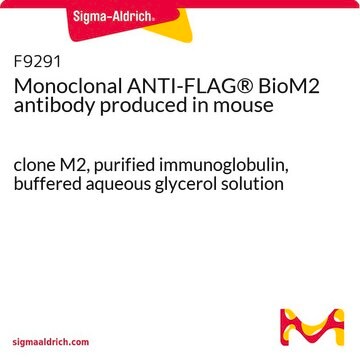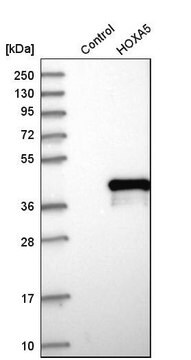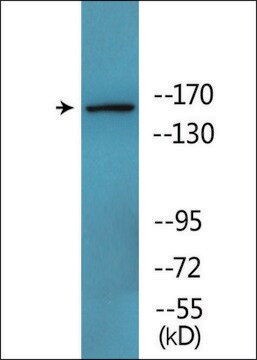ZRB1330
Anti-N1-Phosphohistidine (1-pHis) Antibody, clone SC1-1, ZooMAb® Rabbit Monoclonal

recombinant, expressed in HEK 293 cells
Synonym(e):
Phosphohistidine
About This Item
Empfohlene Produkte
Biologische Quelle
rabbit (recombinant)
Qualitätsniveau
Rekombinant
expressed in HEK 293 cells
Konjugat
unconjugated
Antikörperform
purified antibody
Antikörper-Produkttyp
primary antibodies
Klon
SC1-1, monoclonal
recombinant monoclonal
Produktlinie
ZooMAb® learn more
Form
lyophilized
Mol-Gew.
calculated mol wt ( May vary depending on the histidine-phosphorylated proteins.)
observed mol wt ~45 kDa
Speziesreaktivität
human
Verpackung
antibody small pack of 25 μL
Grünere Alternativprodukt-Eigenschaften
Waste Prevention
Designing Safer Chemicals
Design for Energy Efficiency
Learn more about the Principles of Green Chemistry.
Erweiterte Validierung
recombinant expression
Learn more about Antibody Enhanced Validation
sustainability
Greener Alternative Product
Methode(n)
western blot: suitable using 1:1,000
Isotyp
IgG
Grünere Alternativprodukt-Kategorie
Versandbedingung
ambient
Lagertemp.
2-8°C
Posttranslationale Modifikation Target
phosphorylation (N1-pHis)
Allgemeine Beschreibung
Each ZooMAb antibody is manufactured using our proprietary recombinant expression system, purified to homogeneity, and precisely dispensed to produce robust and highly reproducible lot-to-lot consistency. Only top-performing clones are released for use by researchers. Each antibody is validated for high specificity and affinity across multiple applications, including its most commonly used application. ZooMAb antibodies are reliably available and ready to ship when you need them.
Learn more about ZooMAb here.
Spezifität
Immunogen
Anwendung
Zielbeschreibung
Physikalische Form
Rekonstituierung
Lagerung und Haltbarkeit
Rechtliche Hinweise
Haftungsausschluss
Not finding the right product?
Try our Produkt-Auswahlhilfe.
Lagerklassenschlüssel
11 - Combustible Solids
WGK
WGK 1
Flammpunkt (°F)
Not applicable
Flammpunkt (°C)
Not applicable
Analysenzertifikate (COA)
Suchen Sie nach Analysenzertifikate (COA), indem Sie die Lot-/Chargennummer des Produkts eingeben. Lot- und Chargennummern sind auf dem Produktetikett hinter den Wörtern ‘Lot’ oder ‘Batch’ (Lot oder Charge) zu finden.
Besitzen Sie dieses Produkt bereits?
In der Dokumentenbibliothek finden Sie die Dokumentation zu den Produkten, die Sie kürzlich erworben haben.
Unser Team von Wissenschaftlern verfügt über Erfahrung in allen Forschungsbereichen einschließlich Life Science, Materialwissenschaften, chemischer Synthese, Chromatographie, Analytik und vielen mehr..
Setzen Sie sich mit dem technischen Dienst in Verbindung.







